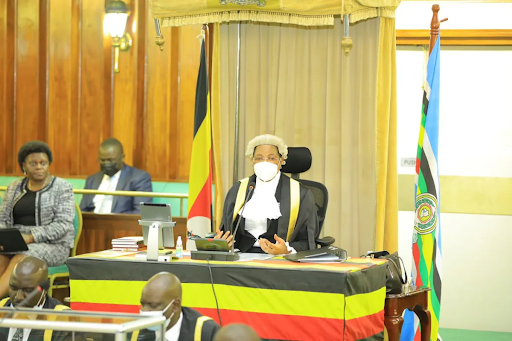The Computer Misuse (Amendment) Bill, 2022, which set harsh penalties for cybercrimes and was privately proposed by Muhammad Nsereko (Ind., Kampala Central), has been passed by the Parliament of Uganda.
The purpose of the Computer Misuse (Amendment) Bill, 2022 was to amend the Computer Misuse Act, 2011, in order to strengthen the provisions on unauthorized access to information or data; prohibit the sharing of any information pertaining to a child without authorization from a parent or guardian, and prohibit the sending or sharing of information that promotes hate speech.
Uganda’s Computer Misuse Bills
https://twitter.com/Parliament_Ug/status/1567841642467450882
A new section of the law proposed by the chairperson of the ICT committee, Hon. Moses Magogo, defines social media and establishes sanctions for computer users who hide behind fake identities. It reads: “A person who uses social media to publish, distribute or share information prohibited under the laws of Uganda or using a disguised or false identity, commits an offence.”
According to the provisions of the law, an individual who is responsible for managing an account for an organization in which the aforementioned conduct occurs would be held accountable for the commission of the offence.
The sentence continued by providing a variety of interpretations of what “social media” means. “a set of technologies, sites, and practices which are used to share opinions, experiences, and perspectives, and includes YouTube, WhatsApp, Facebook, Instagram, Twitter, WeChat, TikTok, Sina Weibo, QQ, Telegram, Snapchat, Kuaishou, Qzone, Reddit, Quora, Skype, Microsoft Team, and LinkedIn.”
If a person violates the provision that is at issue, they will, upon conviction, be subject to one of the following punishments: a fine of sixteen million shillings, a prison sentence of five years, or both the fine and the sentence.
Read also: Kenya Launches Cybercrime Protection Game for Children
Verified accounts on social media platforms are believed to be owned by the individuals who use such platforms under their own names until it can be shown that the opposite is true.
People whose phone numbers and/or email addresses were used to create social media accounts will also be held personally responsible for crimes that were committed in violation of the act as it is now changed.
As the Honorable Magogo put it, the goal of the provision was to “provide for the regulation of social media.”
Additionally, the measure criminalized and characterized unsolicited material, but it exempted commercial advertisements from the categorization, allowing marketers the freedom to disseminate information to audiences whom they had specifically targeted.
Clause 5 reads in part as follows: “For the purposes of this section, “unsolicited information” means information that is given to a person using the internet without the person’s agreement; however, “unsolicited information” does not include an unsolicited commercial message.”
Opposition against the Bills
The rest of the clauses were passed without any opposition, except for one vote from MP Gorreth Namugga (NUP, Mawogola County South). He voted against a clause that said people who had been convicted couldn’t hold public office or run for elections for 10 years after they got out of jail.
In her report for the minority, Member of Parliament Namugga argued that the law contravened the constitution and pleaded with the House not to adopt it.
“The entire bill should not be left to stand as part of our laws as all the clauses are already catered for in existing legislation and, in some instances, offends the Constitution of the Republic of Uganda; the fundamental rights to access information electronically and to express oneself over computer networks are utterly risked by this bill,” she said.
She added: “lf passed into law, it will stifle the acquisition of information; the penalties proposed in the bill are overly harsh and disproportionate when compared to similar in others “This bill, if passed, will be a bad law and liable to constitutional petitions upon assent.”
